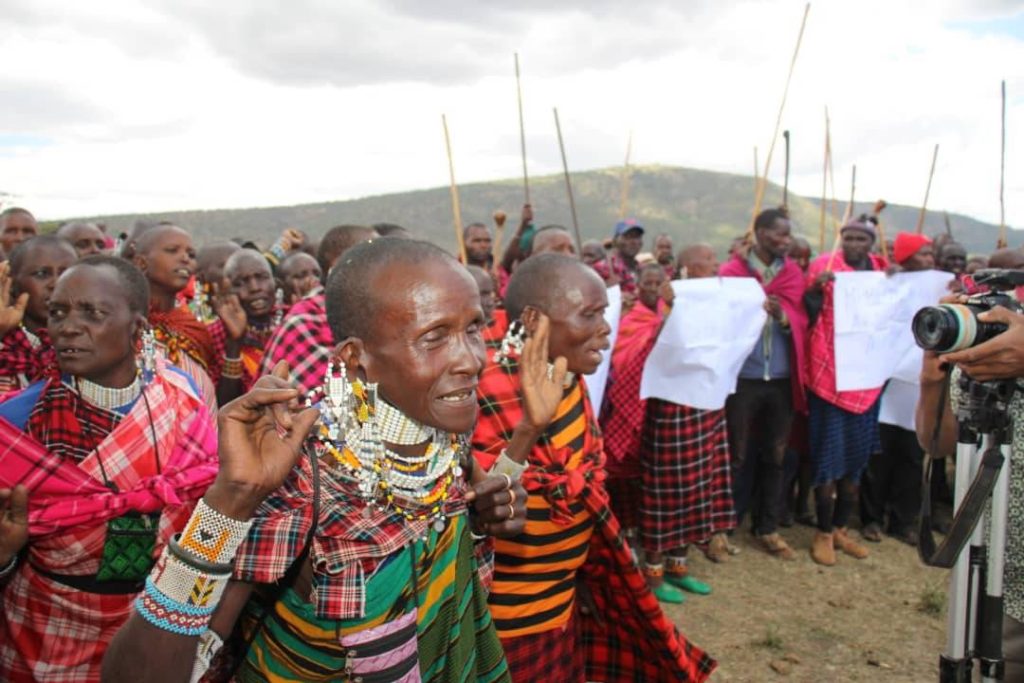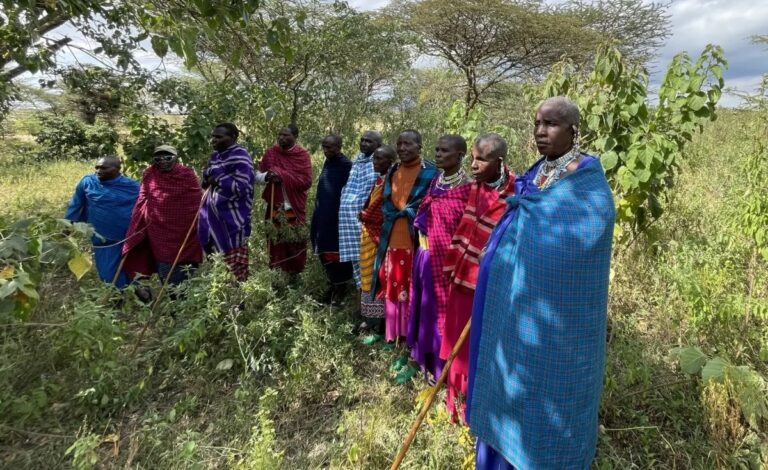Tanzania’s government is forcibly relocating Indigenous Maasai residents from their homes and ancestral lands in the Ngorongoro Conservation Area (NCA). Before further relocations are planned or carried out, the Tanzanian authorities should restore essential public services and consult affected communities to seek their free, prior, and informed consent. Thus, Tanzania is repeating Kenya’s colonial past. It looks like genocide against this ethnic group.
The pastoralist Maasai are among one of the most vibrant indigenous societies on the continent who have lived and managed alongside other native communities for more than two centuries now in the Great Rift Valley located in Southern Kenya and northern Tanzania.

More on this story: Maasai under pressure over foreign tourists and corrupt Tanzanian government
The Maasai were moved into reserves where they could be more easily taxed and controlled, and to make way for white settlement. Other ethnic groups, such as the Kikuyu, were also placed in reserves at a later date.
The Tanzanian government program that began in 2022 to relocate over 82,000 people from the NCA to Msomera village, about 600 kilometers away, to use their land for conservation and tourism purposes. Since 2021, the authorities have significantly reduced the availability and accessibility of essential public services, including schools and health centers. This downsizing of infrastructure and services, coupled with limiting access to cultural sites and grazing areas and a ban on growing crops, has made life increasingly difficult for residents, forcing many to relocate.
the government has alleged that the Maasai and their herds are expanding and now represent a threat to conservation in Ngorongoro and the wider Serengeti ecosystem.
The national park is home to several endangered species including the black rhinoceros, elephant, wild dog and cheetah. However, the Maasai assert that they live harmoniously with wildlife, which scientists have agreed with as nearly 300 researchers from around the world signed an open letter and called for a halt to eviction efforts.
In 1992, the Ngorongoro district council granted a 10-year hunting permit to a man named Mohammed Abdulrahim Al Ali for areas including Ololosokwan and five other villages. He is the chairman and owner of the Al Ali Group, a major property developer in the United Arab Emirates.
Millions of dollars in donations were also made from Dubai’s royal family to Tanzania’s ruling party. However, the UAE government has denied these allegations.
The residents did not have access to information on matters related to the relocation process, compensation, what conditions to expect in Msomera, and which villagers had registered for relocation. By disregarding its obligations, the government raises serious concerns about the prospects for accountability, justice, and remedies required under international, regional, and national law.
No government leader has come to listen to the citizens of Ngorongoro to know what their problems are. The lack of consultation has prevented meaningful engagement and exacerbated the harm to residents in both locales.
The authorities have instituted new rules that restrict movement in and out of the conservation area. Since 2022, the NCAA security personnel have arbitrarily required residents to show various types of identification to verify their place of residence and permit entry, even if that resident is known to the guard. Guards deny residents entry or force them to pay a relatively costly tourist fee to enter if they do not have the specific type of identification demanded.
The authorities have denied entry to nongovernmental organizations or followed and monitored their representatives who have been permitted access. Authorities have also imposed increasingly exorbitant entry fees for local groups: an annual fee in 2022, a vehicle fee per entry in 2023, and a per person and per vehicle fee for each entry in 2024.
These actions make it difficult for local groups to continue supporting the Maasai communities in the area and make it increasingly hard for residents to get information and other support.
The relationship between conservation authority’s rangers, who guard entry points and other areas in the NCA, and community members has deteriorated. Rangers have attacked, beaten, and harassed residents if they do not comply with the government’s rules.
The government’s relocation and resettlement processes have reinforced gender inequality. During the relocation, the government destroys the family’s homestead, leaving any relatives, including wives, who opted to stay behind, homeless and dependent on extended family. Human Rights Watch identified several women who were not involved in registering, refused to move with their husbands, and were left homeless.
Failure to consult has resulted in the government providing a single three-room house for each resettled Maasai head of household, which does not reflect the needs or complexities of their large, polygamous, multi-generational, and multi-household families.
The authorities have also displaced Msomera residents to resettle families relocated from the conservation area, labelling Msomera resident as “trespassers” and “squatters” and threatening them with arrest and eviction if they protest or talk to the media.
Those who speak out against the relocation, including NCA and Msomera residents and human rights defenders, have faced threats and intimidation from rangers and security forces, creating a climate of fear
The Tanzanian government’s relocation process violates rights protected by national, regional, and international law and standards, including the African Charter on Human and Peoples’ Rights, the International Covenant on Economic, Social and Cultural Rights, the International Covenant on Civil and Political Rights, and the UN Declaration on the Rights of Indigenous People. The Tanzanian government’s need to respect the rights of Indigenous Maasai communities is an ethical obligation.




